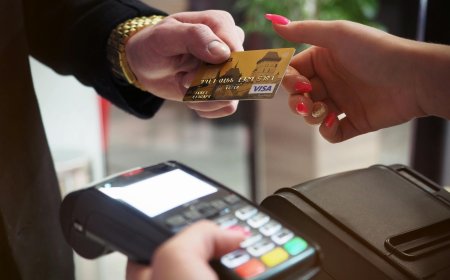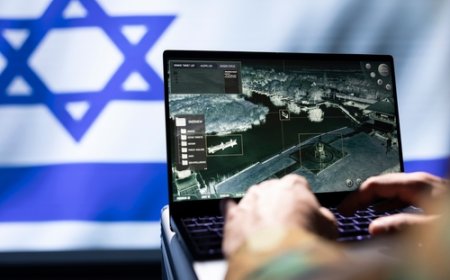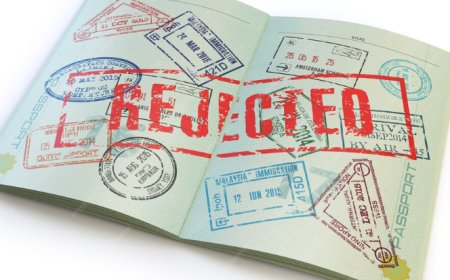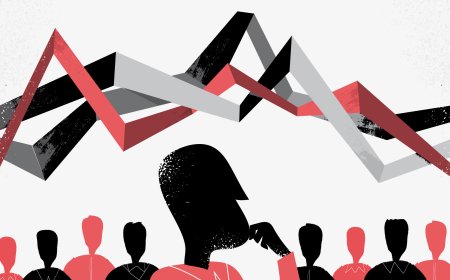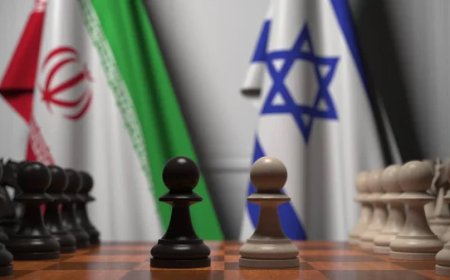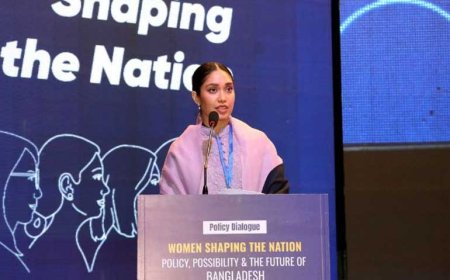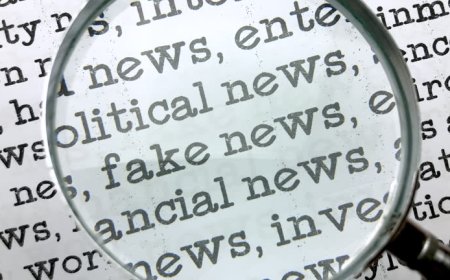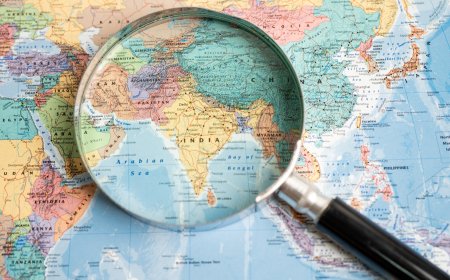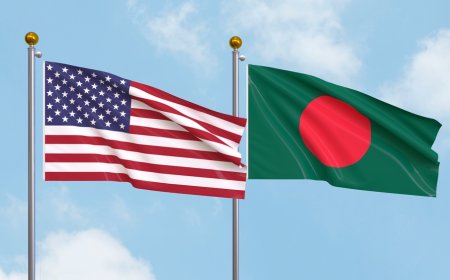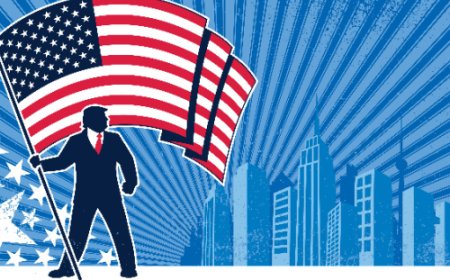An Updated Playbook for Trump's America
How to turn the tariff threat into a strategic opportunity through a bold US-Bangladesh partnership agenda
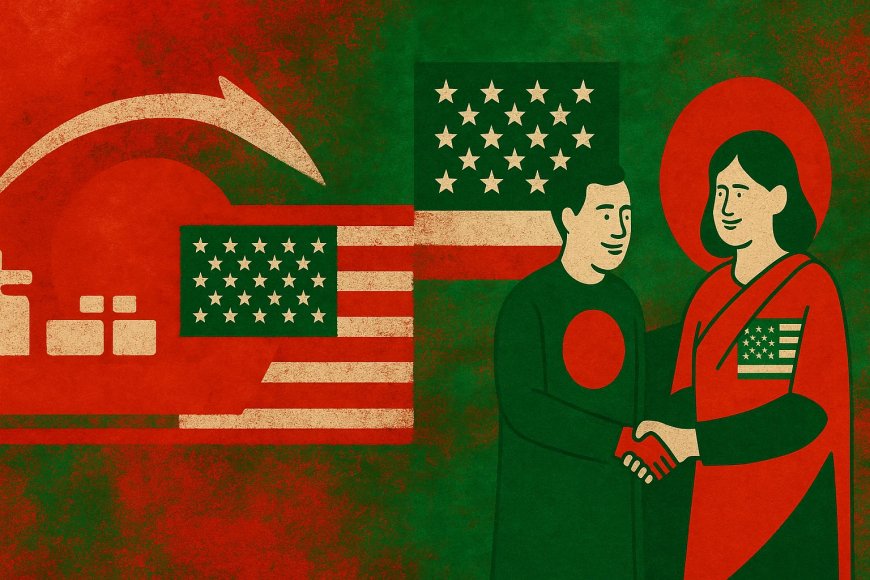
Executive Summary
Bangladesh is at a crossroads.
With the US set to impose a 35-37% tariff on Bangladeshi exports starting August 1, the country faces its most serious trade challenge in over a decade. The stakes are enormous: $6 billion in exports, 4-5 million jobs, and the country’s dominant position in the US apparel market.
This is more than a policy issue, it’s a strategic reckoning.
The US isn’t asking for aid or sweeping reforms. What it seeks are mutually beneficial deals. Ones that deliver domestic wins in energy, defense, agriculture, and market access. In this high-stakes moment, symbolism alone won’t suffice. Bangladesh must lead with substance, not just signals.
Our objective at UBUI is to equip Bangladesh with a playbook to move fast, negotiate smart, and offer a credible, optics-rich trade package that delivers bilateral benefits and secures long-term market access.
Tri-Vue Situation Analysis
A. Observable Layer: What’s Happening?
- President Trump has greenlit steep tariffs on Bangladesh’s exports -- predominantly garments.
- The tariff will be implemented August 1.
- Bangladesh enjoys a $6B+ trade surplus with the US. GSP status is still suspended.
B. Strategic Layer: What’s Actually Going On?
- The US wants high-visibility wins ahead of the 2026 election: LNG exports, Boeing orders, Midwest farmer support, and strategic optics.
- BD’s current offers like lifting tariffs on limited US imports are commercially insignificant.
- Peer nations are rapidly crafting multi-sectoral, reciprocal deals that win US favour and media coverage.
.
Power Layer: What’s the Move?
Bangladesh must stop playing defensively and:
- Bundle big deals in energy, defense, agriculture, and digital markets.
- Anchor the ask in GSP reinstatement and tariff waiver protocol.
- Match the pace and credibility of Vietnam, Indonesia, and the Philippines.
Peer Benchmarking: Lessons from Other Countries
Here’s how key peer nations are staying ahead -- and what Bangladesh must learn fast.
Our Analysis: While peer countries have moved quickly to secure high-impact deals, Bangladesh is still shaping its strategic response. The window for action is narrowing and now is the time to move with clarity and conviction.
Game Theory Insight
This isn’t just about trade. It’s about game theory in motion where each side moves based on asymmetric incentives and the pursuit of visible wins. The U.S. values what it can show at home: jobs, exports, and strategic access. Bangladesh must craft a response that aligns with those incentives not just negotiate, but position.
Nash Equilibrium: A bold, reciprocal offer from Bangladesh triggers a politically valuable US response, benefitting both economies. Anything less leads to mutual erosion.
Recommended Strategic Path for Bangladesh
Rather than overwhelm the negotiation with numbers, Bangladesh should offer a clear, bundled vision aligned with US interests:
Energy
- Long-term LNG imports (15-20 years).
- Strategic equity in US LNG infrastructure creating American jobs while securing BD energy access.
Defense & Security
- Multi-year defense procurements (air defense, coastal systems).
- Co-development and training with US defense firms.
Agricultural Redirection
- Redirect raw cotton, wheat, soybean imports toward US suppliers.
- Anchor the deal as a “midwestern farmer victory.”
Aviation & Industrial Equipment
- Purchase 10-15 Boeing aircraft for Biman and private airlines.
- Prioritize US manufacturers in locomotives, turbines, and medical equipment.
Regulatory Reform & Market Access
- Fast-track licenses and reform for U.S. fintech, cloud, and telecom players.
- Enable market access for firms like AWS, Stripe, etc.
The Ask: Reciprocity & Partnership
- Permanent suspension of tariffs.
- GSP reinstatement or equivalent preferential access.
- Strategic economic dialogue mechanism for the next decade.
Strategic Impact on Bangladesh
A bold, reciprocal trade strategy isn’t just about neutralizing tariffs. It’s about shaping Bangladesh’s economic future. The right package can protect jobs, stabilize the macroeconomy, and unlock new partnerships with long-term US allies. Here’s what’s at stake:
This is about more than short-term survival. It’s about future-proofing Bangladesh’s access to the world’s largest consumer economy.
Bottom Line
Bangladesh has one shot to prove it can act with strategic intent, not diplomatic passivity.
The US wants deals, jobs, and headlines -- not memos, delays, or symbolic pledges. And peer countries are already giving them that.
To secure its future, Bangladesh must:
- Deliver a credible, optics-heavy package
- Embed reciprocal asks
- Move faster than competitors
Failure to act now risks losing not just market access but momentum, reputation, and trust. Let’s act before someone else does.
Asif Ahmed, Shah Chowdhury, and Mohammed Mia are members of US Bangladesh Unity Initiative (UBUI).
Sources:
- Ministry Press Release on Boeing and Starlink, June 2025
- Indonesia–U.S. Bilateral Deal Briefing, Jakarta Post, July 2025
- Thai Ministry of Commerce Briefing to ASEAN, June 2025
- Philippine Ambassador’s CNN Interview on U.S. Trade Diplomacy, July 2025
- Egypt-U.S. Trade Volume Analysis, African Business Journal, Q2 2025
- Bangladesh Ministry of Commerce and Petrobangla LNG Demand Forecast, 2025
- Congressional Bangladesh Caucus Summary, House Foreign Affairs Subcommittee, 2025
- Sempra Infrastructure LNG Contract Disclosures, June 2025
- Cheniere Energy Investor Briefing on Asia Commitments, Q2 2025
- Bloomberg Analysis on U.S.–Asia Aircraft Trade, June 2025
- U.S. Department of Commerce: Trade with ASEAN Countries Report, 2024
- Cotton Council International Market Engagement Memo, Spring 2025
- USDA Foreign Agricultural Service Briefing on Bangladesh Wheat Trade, May 2025
- Center for Strategic and International Studies (CSIS) Indo-Pacific Tracker, 2025
What's Your Reaction?












